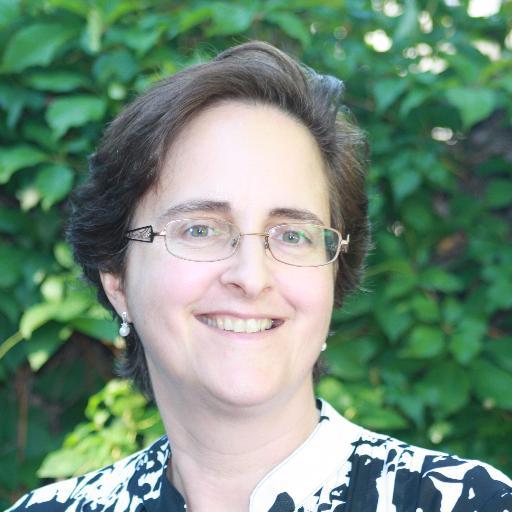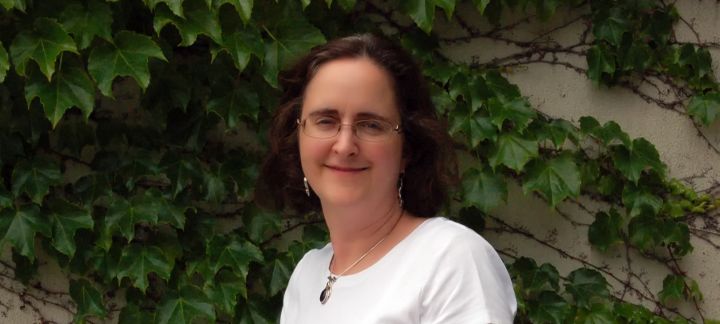
Media
The Oasis Affair
A Montreal woman's life is radically changed when she is sued by a giant manufacturer in a David and Goliath battle over her company's name. Writer/Director: Heidi Lasi DOP: Michael Tien Editor: Matt West Subjects: Deborah Kudzman, Ian Lee, Normand Painchaud, Teresa Scassa, Christiane Desjardins Producers: Lisa Nault, Heidi Lasi, Sarah Fodey, Patrick McGowan, 8748179 Canada Inc., inMotion Production Group Funder: bravoFACT
Interview with Geothink Professor Teresa Scassa
In our first of many interviews with Geothink's experts, we talk to Teresa Scassa about open access and Canada's Action Plan for Open Government 2.0.
CBC Radio - Spark, November 22, 2015Radio/Podcast
These sensors are meant to produce meaningful, timely data that will make cities more efficient and responsive. Many plans for smart cities involve collaboration with private companies. The question is: who owns the data that's gathered, and what can be done with it? Teresa Scassa is a law professor at the University of Ottawa. She's concerned that when cities create smart city partnerships with private tech companies, they may lose control of the data...
CBC Radio - As It Happens, November 26, 2015Radio/Podcast
Scassa is an intellectual property expert and professor of law at the University of Ottawa. Although she sympathizes with Awa, Scassa says her family has very little legal protection against the label. Teresa Scassa is an intellectual property expert at the University of Ottawa. (University of Ottawa) Scassa explains that in Canada, copyright is protected for the life of the author plus an additional 50 years. Depending on when Awa's great-grandfather passed away, the original design may not have fallen into public domain. But either way, Scassa says the case will be difficult. "This is not the kind of thing that Canadian law has really recognized in the past," Scassa says. "The protection for indigenous cultural property and traditional knowledge is fairly weak in Canada."...
Radio-Canada, January 19, 2015Radio/Podcast
URL: http://ici.radio-canada.ca/emissions/bernier_et_cie/2014-2015/chronique.asp?idChronique=360780
La professeure à la faculté de droit de l'Université d'Ottawa et membre de la Chaire de recherche du Canada en droit de l'information, Teresa Scassa, présente la nouvelle réglementation canadienne en matière de droit d'auteur sur Internet. Cette dernière est entrée en vigueur au début du mois de janvier.
Quand le téléviseur nous écoute
Le Devoir, February 10, 2015Print
URL: http://www.ledevoir.com/culture/television/431386/quand-le-televiseur-nous-ecoute
Les intrusions dans la vie privée se suivent et ne se ressemblent pas. Lundi, Samsung, le géant sud-coréen de l’électronique, a dû s’expliquer après le dévoilement dans les univers numériques d’une composante troublante de ses Smart TV, téléviseurs dits « intelligents », car ils sont connectés à Internet, et qui peuvent écouter et transmettre à une tierce partie les discussions pouvant être tenues devant l’appareil. Avant, on écoutait la télévision. Aujourd’hui, l’inverse devient également vrai.
Gare aux fausses accusations sur les réseaux sociaux
Le Droit, May 27, 2015Print
Au lendemain de l'annonce de Facebook Canada de diffuser des alertes Amber sur les fils d'actualité de ses abonnés, tous s'entendaient pour dire que cette initiative doit permettre de sauver d'autres bébés des mains d'un kidnappeur, comme cela a été le cas il y a un an, à Trois-Rivières. Un bébé naissant avait alors été retrouvé grâce à la vigilance d'internautes et à la diffusion rapide d'informations sur Facebook.
Artist sues after TV show films Montreal building that he had tagged with graffiti
The National Post, July 28, 2014Print
Teresa Scassa, a University of Ottawa law professor specializing in intellectual property, said there are few precedents in Canada for the copyright protection of graffiti. The federal Copyright Act includes an exemption allowing people to film or photograph public sculptures and architectural works, but it does not mention paintings.
Prof. Scassa Wins 2013-2014 CALT Award for Academic Excellence
University of Ottawa, June 9, 2014Online
URL: http://commonlaw.uottawa.ca/en/news/prof-scassa-wins-2013-2014-calt-award-academic-excellence
Professor Teresa Scassa has been awarded the 2013-2014 Canadian Association of Law Teachers (CALT) Award for Academic Excellence. The prize will be bestowed at the annual CALT conference banquet on June 7, 2014, in Winnipeg. “The CALT Prize for Academic Excellence honours exceptional contribution to research and law teaching by a Canadian law teacher in mid-career,” reads the CALT website. In addition to the Academic Excellence Award, CALT will also give out its Scholarly Paper Award, which recognizes the work of new scholars whose papers make a substantial contribution to legal literature, to Professor Eric Adams of the University of Alberta.
Police Service Crime Mapping as Civic Technology: A Critical Perspective
Published by Intenrational Journal of E-Planning Research
August 17, 2016
It is increasingly common for municipal police services in North America to make online crime maps available to the public. This form of civic technology is now so widely used that there is a competitive private sector market for crime mapping platforms. This paper considers the crime maps made available by three Canadian police forces using platforms developed by U.S.-based private sector corporations. The paper considers how these crime maps present particular narratives of crime in the city, evaluates the quality of the mapped data, and explores how laws shape and constrain the use and reuse of crime data. It considers as well the problems that may arise in using off-the-shelf solutions – particularly ones developed in another country. It asks whether this model of crime mapping advances or limits goals of transparency and accountability, and what lessons it offers about the use of private sector civic technologies to serve public sector purposes.
Privacy and Open Government
Published by Future Internet
2014 The public-oriented goals of the open government movement promise increased transparency and accountability of governments, enhanced citizen engagement and participation, improved service delivery, economic development and the stimulation of ...
Legal issues in mapping traditional knowledge: Digital cartography in the Canadian North
Published by The Cartographic Journal
2015 Digital cartography offers great potential for mapping the traditional knowledge of indigenous communities. This is particularly so because of the close relationship between such knowledge and traditional lands. Yet the mapping of traditional knowledge also ...
URL: http://www.tandfonline.com/doi/abs/10.1179/174327713X13847707305703
Legal issues with volunteered geographic information
Published by The Canadian Geographer
2013 Volunteered geographic information (VGI) is a relatively new and rapidly developing activity with varying degrees of organization and legal sophistication that involves host sites, contributors, and users. VGI related activities raise a variety of legal issues, from ...
URL: http://onlinelibrary.wiley.com/doi/10.1111/j.1541-0064.2012.00444.x/full
Canadian Intellectual Property Law: Cases and Materials
Published by University of Western Ontario
2013 Canadian courts and Parliament are seeing unprecedented activity in the area of intellectual property (IP) law. An overhaul of the Copyright Act, proposed new legislative enforcement mechanisms for copyrights and trademarks, and recent rulings from the Supreme Court of Canada all challenge the core doctrines underlying intellectual property law...
Canadian Trademark Law, 2d Edition
Published by LexisNexis
In this new edition of Canadian Trademark Law, renowned intellectual property expert Teresa Scassa discusses how these amendments have changed the pre-existing legislative framework and, consequently, modified the basic principles of trademark law.
Ambush Marketing Legislation to Protect Olympic Sponsors: A Step Too Far in the Name of Brand Protection?
Published by Intellectual Property for the 21st Century: Interdisciplinary Approaches
2014 Ambush marketing and its possible threat to brand equity has been identified as a key concern for mega sport event organisations and their sponsors. In recent years, international sport federations have sought to leverage the enormous interest in hosting ...
URL: http://papers.ssrn.com/sol3/papers.cfm?abstract_id=2669723
Biography
Dr. Teresa Scassa is the Canada Research Chair in Information Law at the University of Ottawa, where she is also a professor at the Faculty of Law. She is the author or co-author of several books, including Canadian Trademark Law (2d edition, LexisNexis 2015), and co-author of Electronic Commerce and Internet Law in Canada, (CCH Canadian Ltd. 2012) (winner of the 2013 Walter Owen Book Prize). She is a past member of the External Advisory Committee of the Office of the Privacy Commissioner of Canada, and the Canadian Government Advisory Committee on Open Government. She is a member of the GEOTHINK research partnership, and has written widely in the areas of intellectual property law, law and technology, and privacy.
BIOGRAPHIE FRANÇAIS Teresa Scassa est la Chaire de recherche du Canada en droit de l’information à la faculté de droit (section de common law) de l’Université d’Ottawa. Elle est diplômée en droit de la faculté de droit de l’Université McGill, et a obtenu sa maitrise et son doctorat en droit de l’Université de Michigan. Elle est auteure de Canadian Trademark Law 2e édition (Lexis/Nexis 2015) et co-auteure de Electronic Commerce and Internet Law in Canada 2e édition (CCH Canadian 2012). Dr. Scassa était membre du Comité consultatif sur le gouvernement ouvert du gouvernement fédéral et du Comité consultatif externe du Commissariat à la protection de la vie privée du Canada. Elle a publié plusieurs articles dans plusieurs champs d’études incluant la propriété intellectuelle, le droit à la vie privée, et le droit et la technologie.
Recognition/Reconnaissance
University of Ottawa, APUO Award for Excellence in Research, 2015 | Professional
Research excellence award
GeoThink | Professional
Funded by the Canadian Social Sciences and Humanities Research Council Partnership Grant Program and generous contributions from grant partners.
Co-Founder, Canadian Journal of Law and Technology | Professional
Co-founder (with Michael Deturbide) of the Canadian Journal of Law and Technology
Canada Research Chair in Information Law | Professional
Research Chair
Canadian Association of Law Teachers Academic Excellence Award | Professional
Award for Academic Excellence
Past Talks
Privacy and Open Government: A Balancing Act
United Nations Experts Group
New York, NY, February 18, 2016
Managing Intellectual Property Rights in Citizen Science
Wilson Centre Commons Lab
Washington, DC, December 15, 2015
Mapping Crime: Civic Technology in the Emerging Smart Cities Context
American Association of Geographers Annual Conference
San Francisco, USA, March 30, 2016
Big Data, Smart Cities and Privacy
Privacy Security Days 2.0
Algonquin College, Ottawa, ON, February 24, 2016
“The Fine Art of Trademarks: Balancing Owners’ Rights with Artistic Expression”
American Law and Property Scholars Association Conference
Queen's University of Belfast, May 21, 2016




